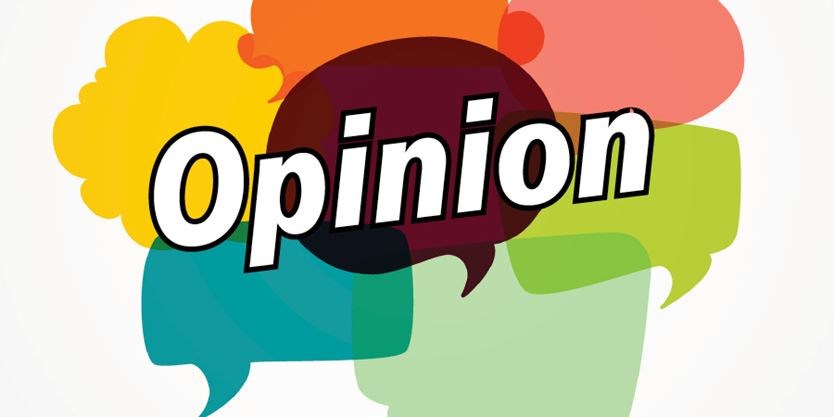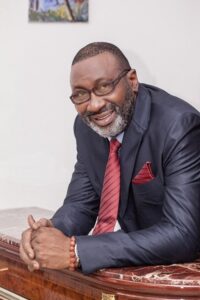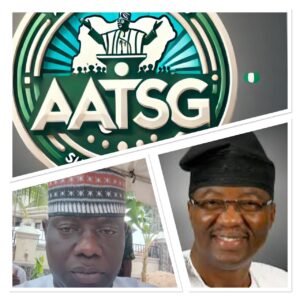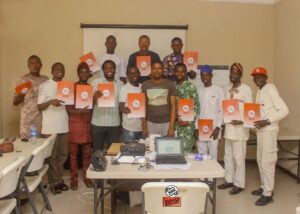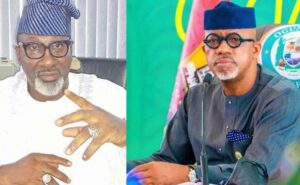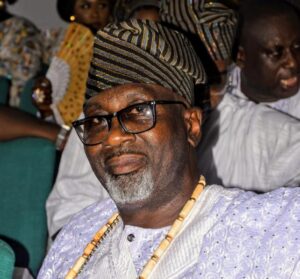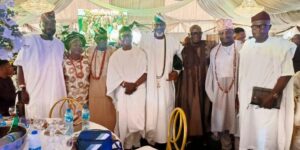This are the reflections of Muyiwa Adetiba very interesting read.
In just about six months, most of the election noises would have quietened.
And the country through INEC alone, would be about N150 billion Naira poorer.
The noises would shift to the courts where another undisclosed amount would be expended.
Senior lawyers and many of the Tribunal Judges are expected to smile all the way to the bank.
So would some retired judges and all those who serve as brokers to our skewed justice system.
In all, not less than about N250 Billion Naira of Nigeria’s resources—hard earned or not—would have gone for this election.
I am including of course, cash for votes and other ‘financial logistics.’ In the end, nothing fundamental would have changed because nothing fundamental has been rigorously addressed.
Barring an upset, General Muhammadu Buhari would be returned.
So would over 70% of the incumbents. Very few of them have earned a return because very few of them have positively affected the lives of those under their charge.
But then, what are the criteria for a return? There is no standard, no red line, no irreducible minimum below which, an incumbent should be denied.
The only standard seems to be the availability of money, however acquired. And the ability to speak with both sides of the mouth.
At the end of the exercise, the rich political class—and its fat-cat lawyers— would have become richer while the rest of us would have become poorer.
The infrastructures would remain weak and critical sectors would remain underfunded.
We would be overly optimistic if not stupid to expect things to change for the better going forward just because we have gone through another electoral cycle while the system remains as it is.
Or to think there is no tipping point to this thoughtless way of running a country.
I had hoped—it seems such a waste of emotions now—that a third force would emerge that would throw up some uncomfortable questions about governance in the country.
A force that would challenge the status quo not seek to accommodate it.
Yes, a third force did come up and some of the names appeared credible. But it compromised itself by aligning with tainted politicians.
It wanted power on existing terms, with the existing system. Alas, the third force has not proved to be a force for any fundamental change.
It is just, for the members, another route to political power.
The ‘Not too young to run’ group is another sad tale.
Having secured the passage of a bill that lowered eligible ages for those aspiring to political positions, it now wanted some tokenism from existing political parties.
The problem, dear ‘Not too young to run’ is in the parties themselves and the systems they operate.
And asking for guaranteed slots is already a compromise against merit and competence.
Macron, Kurz and Trudeau or even Obama and Clinton didn’t just happen. These guys prepared themselves for political leadership over a considerable length of time.
And they worked within a system that gave opportunities to ideas, to merit.
They were/are at the helm of affairs in their respective countries not because but in spite of age.
It is also disconcerting to see how many political neophytes think it is easier to vie for the presidency than to vie for the Senate or House of Rep.
It is like hoping to be the CEO of a multinational company without serving some apprenticeship.
It is bewildering to see them talk of a preferred destination without considering the vehicle that will take them here.
I think the whole attitude belittles the seriousness of the occasion if not the institution of the presidency itself.
The issue as I see it is that we are a poor country, our oil resources notwithstanding. It is an issue both the leaders and the led are in denial about but the earlier we faced that fact, the better for us.
We are also a nation that has badly managed its resources. I expect new parties or new thinking to address the issue of the economy and how it can work better for all of us.
This new thinking should query why we spend colossal sums every four years on election materials. Is it not possible to leverage on available new technology to effect a cheaper and yet more reliable polling system?
The present system is archaic and wasteful. It only serves the interest of the current rigging class. I also believe it will be cheaper and less acrimonious to have a fixed term of six years because we will then be having two elections in 12 years instead of three.
The reality of our economic situation where we barely have money for capital projects dictates that we cannot afford a bicameral National
Assembly.
We should choose one. We also cannot afford full time Assembly members at the rate it is causing the nation to sustain them.
The amount that goes to the Executive especially Aso Rock is atrocious in the circumstances. The place is unwieldly and unproductive. It is a drain on our purse.
The buzz word in town is restructuring. Yet very few of its proponents have come up with specifics so we are left to individual interpretations of the word.
It is however clear that a country that spends 90% of its resources to feed 1% of its populace needs to be restructured.
A budget where over 70% goes to recurrent expenditure needs to be restructured.
A country where the states rely on the centre for sustenance needs to be restructured.
A country where state governors have to look to the centre to combat crimes has to be restructured.
An economy that does not reward productivity, where consumption tax is distributed from the centre, where those who spend are not those who earn, needs to be restructured.
To me, the issue with our country is the economy and our management of it. It is why Nigerians are falling into poverty every day.
It is why we have one of the highest infant mortality rates in the world.
It is why we have one of the highest out of school children in the world.
It is why we have instability in the north-eastern part of the country.
It is why youth unemployment rate is this high.
The devil is in the system we operate.
It is why the political class is the richest class.
Anybody aspiring for public office must first acknowledge that we are poor.
He must then tell us in graphic details how the economy should be restructured and revamped starting with the political ruling class—after all, charity should start from home.
No leader has done that in the 20 years of our most recent democracy. And none during this campaign has promised that.
Yet, the real issue is how to free our economy from rampaging vultures.
Some of them are on the soap box as we speak….

